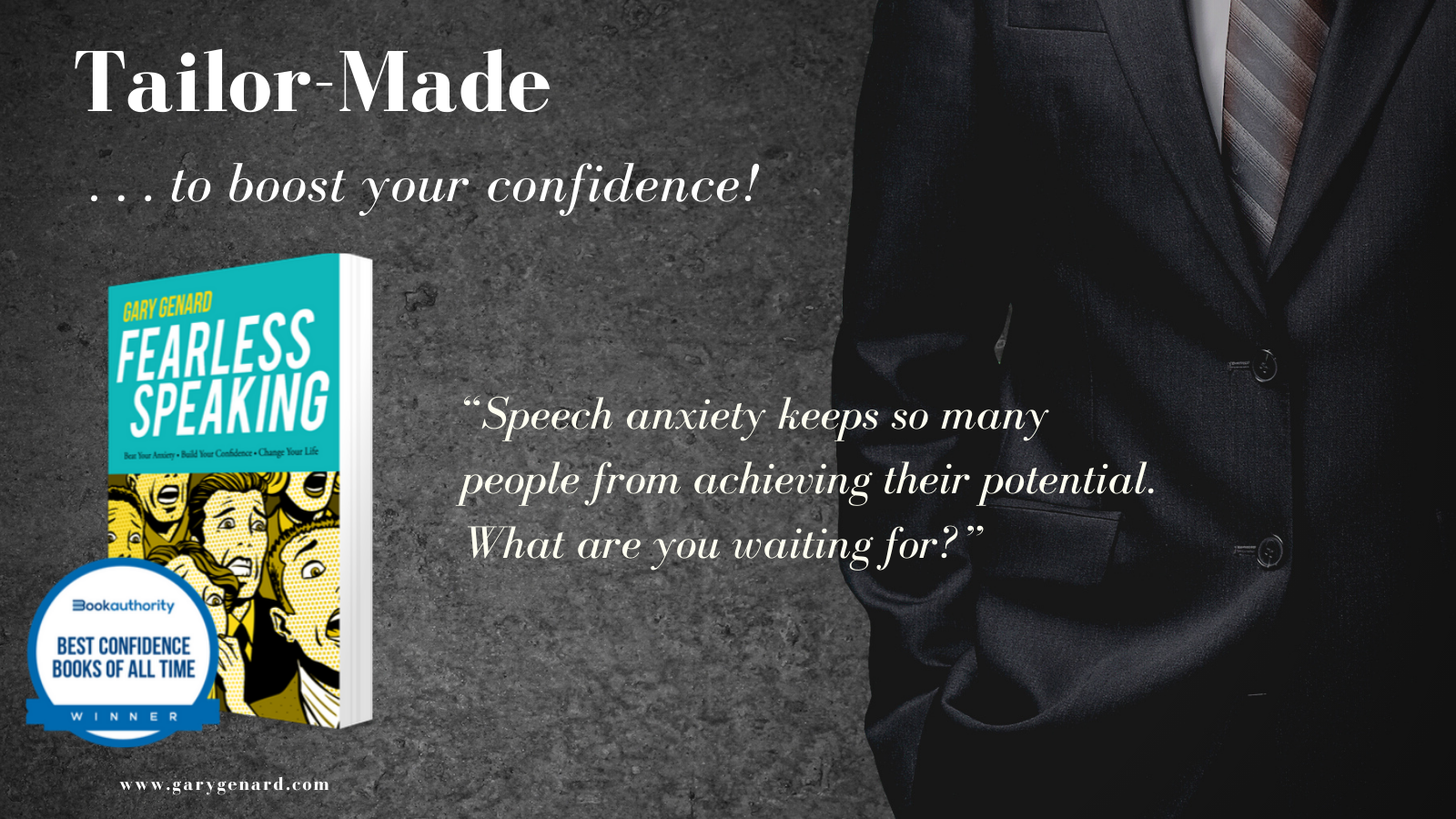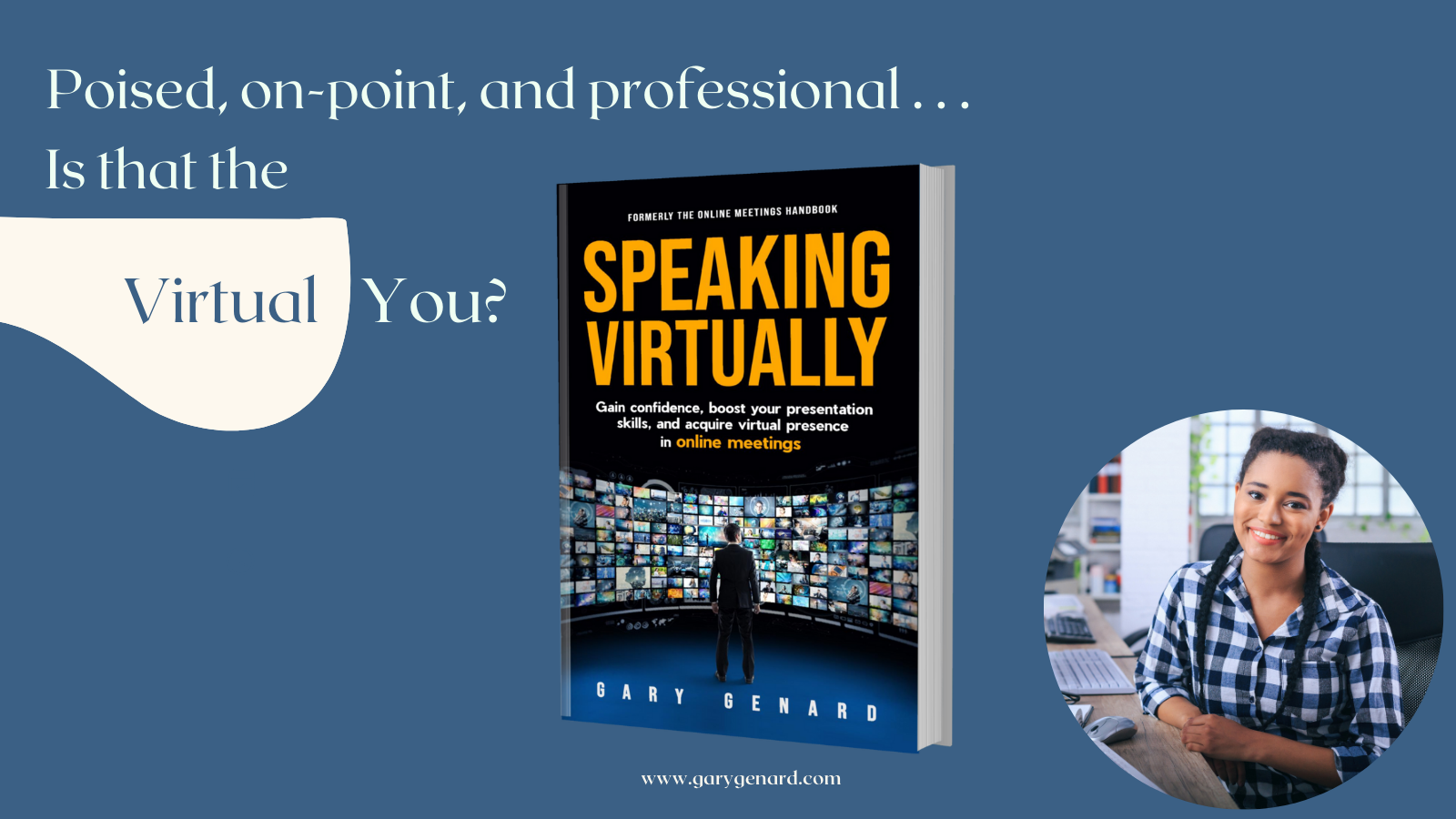Is speech anxiety holding you back in your career? If you have fear of public speaking, this is how you should change your thinking!
Public speaking anxiety—glossophobia—is a tough nut to crack. That's because it's a form of social anxiety which makes you question your ability or worth. (If you're wondering if you have stage fright, take my Free Stage Fright Quiz.)
You may have tried different remedies or "tricks" to get past your fear of public speaking. But the problem has nothing to do with your abilities. It's in your thinking. This post is about how you can change that. It will lift a huge weight from your shoulders—and reveal the path to success.
Ready to beat your anxiety and CHANGE YOUR LIFE? Discover the book that's tailor-made to boost your confidence: Fearless Speaking. Get a signed copy here. Also on Amazon.
'Normal' Can Be Helpful . . . Or Not
Performing in front of an audience brings on nerves because of a desire to do well, and you may look everywhere to learn how to calm your nerves before speaking. That's normal. But when the nerve-o-meter dial swings over into the red, that indicates anxiety, which is not normal and is, in fact, highly counterproductive.
It really comes down to judgment—or we might say, a faulty belief that we are being judged. Most of the time, that's simply not true. So, this is the first way you need to change your thinking if you have public speaking fear. Audiences are usually there because they're interested in what you're saying or showing. So they're focused on your story or message, NOT you!
Your Speaking Persona. As I tell clients, when you speak in public, you are the least important person in the room, auditorium, conference center, or cyberspace. (That's a key element, by the way, in my Free Presenter's Guide, Six Rules of Effective Speaking.)
In fact, when you're on stage speaking, you're exactly like an actor performing in a play. You're not there to look and sound good. You're there for the benefit of the audience. The Holy Grail of public speaking or acting, in fact, is to forget about yourself during the performance. The actor should become the character, and you need to inhabit your speaking persona.
What about your virtual presence? Are you poised, on-point, and professional enough? Improve the 'virtual you' with my book, Speaking Virtually! Also available on Amazon.
In this context, the desire to "do well" actually inhibits your performance. Instead, remind yourself—at all times and at 100% of your capacity—that you need to stay true to the moment. For the actor, it's the moment in the life of that character; for you, it's the "truth" of what your message (or data) is conveying. Believe me, if you're successful at giving audiences what they need, you cannot fail.
Are You Blocking the View? If you stand in front of a magnificent painting at a museum, no one can see it! Take yourself "out of the picture," on the other hand, and people will delight in what they see (and in a presentation, what they hear). If that happens, why wouldn't they think you're a wonderful speaker?
Turn Your Mind Around for a Different View
There are many ways to approach the problem of public speaking fear. Most or all of them are needed, because glossophobia is a complex problem involving different parts of your personality and personal history. My book, Fearless Speaking, for instance, includes 50 different exercises from the worlds of performance theory, cognition, physiology and neurology, and focus and mindfulness.
And it takes time, partly because if stage fright is an issue for you, it most likely has developed over a long period (whether you were aware of it or not). But the aim isn't to make you proficient in one approach or another. It's to alter your mindset where public speaking is concerned. And this is the second recommendation I have for changing your thinking.
It's simple to state, but like any habit that has to do with knowing how to captivate an audience, it takes a firmly directed approach to achieve The key is the core performance mindset of placing the audience at the center of your focus not yourself. If you do that, whatever you have to offer will flow from you to the people in the seats, because you'll be turning both your focus and energy around. Instead of being aimed back at you, they will be pointing in the right direction. Remind yourself also that a presentation is at least as much about what you have to offer as it is about your content. If that were not the case, why would we be there to hear you?
A final thought for those of you who have public speaking fear. Keep in mind that your ultimate goal is not to conquer the fear. It's to be a successful communicator. Getting over your stage fright will take time, but you can get there. After that, well, it's a string of solid performances ahead for you and your audience.
You should follow me on Twitter here.

Gary Genard is an actor, author, and expert in public speaking and overcoming speaking fear. His company, The Genard Method offers live 1:1 Zoom executive coaching and corporate group training worldwide. He has been named as One of the World’s Top 30 Communication Professionals, and as One of America's Top 5 Speech Coaches. He is the author of the Amazon Best-Seller How to Give a Speech. His second book, Fearless Speaking, was named in 2019 as "One of the 100 Best Confidence Books of All Time." His handbook for presenting in videoconferences, Speaking Virtually offers strategies and tools for developing virtual presence in online meetings. His latest book is Speak for Leadership: An Executive Speech Coach's Secrets for Developing Leadership Presence. Contact Gary here.
Main photo credit: geralt on pixabay.com





